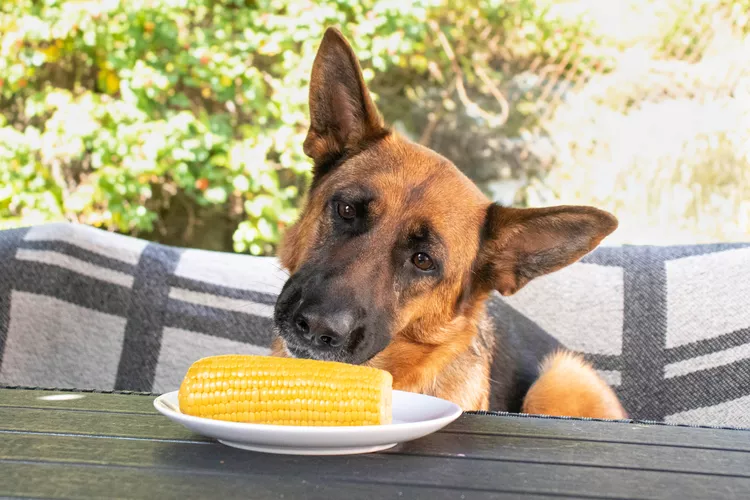
Does your dog beg for a taste of your corn on the cob? You may be tempted to give in to your drooling pooch and offer it as a tasty treat. Some people think corn on the cob is a safe treat for dogs, but this is actually not the case.
Although corn itself is not actually toxic to dogs, feeding corn on the cob can be extremely dangerous.
Feeding corn on the cob to dogs may lead to gastrointestinal obstruction from ingesting the cob. The risk is highest for medium and small dogs but still can be an issue for large breed dogs as well.
Many dogs love to chew on corn cobs because they love the taste of corn and any butter or salt that remains. Unfortunately, too many dogs will gulp a whole corn cob or eat large pieces of cob, leading to a gastrointestinal injury or obstruction. This is because corn cobs do not fully break down in a dog's stomach, and the size of the corn cob is often too large to pass through the rest of the gastrointestinal tract. This risk of gastrointestinal injury is highest in small and medium dogs, but large dogs can be affected. In addition, corn cobs can be choking hazards.
If a dog has a gastrointestinal obstruction or injury, you may not see any signs at first. When the signs do appear, they can vary from mild to severe. Most dogs with GI obstruction or injury will show several signs.
The signs of a GI obstruction may appear similar to the signs of other health issues, so don't jump to conclusions or panic. However, it's essential to contact your veterinarian if your dog is showing any signs of illness, regardless of the potential cause.
If you suspect your dog has swallowed a corn cob, the first thing you should do is contact your veterinarian. Although not all dogs will develop problems after eating corn cobs, it's best to prepare for it just in case. Your vet will advise you on the next steps to take.
Dogs with signs of illness should be taken to the nearest open veterinary office as soon as possible. Gastrointestinal obstruction is an emergency.
Never attempt to induce vomiting in your dog unless you have been specifically advised to do so by a veterinarian. Inducing vomiting can lead to further damage to your dog's stomach and esophagus.
Some dogs will go to great lengths to get tasty treats. This may mean raiding the trash can. When disposing of corn cobs, avoid leaving them in a trash can that your dog can access. The best thing to do is put them in an outside trash or compost bin that is sealed tight and out of reach of dogs or wildlife. Or, you can toss them in a bag in your freezer until trash day.
When entertaining friends and family, make sure everyone knows that corn cobs are off-limits for the dog. In fact, it's best to ask guests to refrain from feeding any kind of table scraps to your dog.
Many dogs enjoy the taste of corn. Fortunately, plain corn is safe for dogs to eat in moderate amounts as long as the dog is not allergic to corn.
Dogs can eat corn as a treat or food topping as long as you remove it from the cob. After cooking the corn on the cob, simply cut it off with a knife and offer a small amount. Never add salt, fat, or other seasonings.
Remember that dog treats should never make up more than 10% of your dog's primary diet, corn included. While it is a safe treat, corn does not have many nutritional benefits for dogs. Feeding too many treats and not enough complete and balanced dog food can lead to malnutrition and other issues.
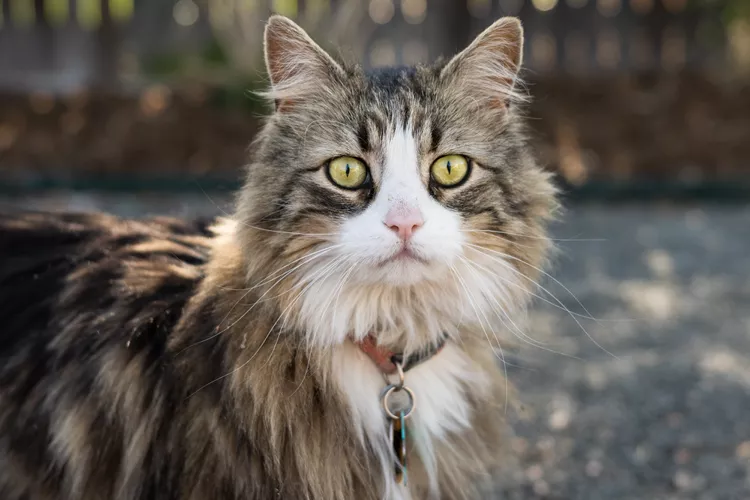
75 Unisex Cat Names
Our gender neutral cat names perfect for your feline friend, with a diverse selection of fun and inclusive options to fit your pet's disposition.
Why Does My Cat Stink?
Is your cat stinky? Find out about the causes of bad odors in cats and when it is something to be concerned about. Learn how to help your stinky cat.
Signs of Rabies in Cats
Rabies is a fatal and contagious virus that can affect cats. Learn about the signs of rabies in cats and what to do about them.
Can Cats Eat Dog Food?
Can cats eat dog food? In small amounts, it's unlikely to be a problem, but long-term feeding of dog food to cats can cause health issues and malnutrition.
Exploring the Different Types of Pet-Friendly Beaches
Are you looking for pet-friendly beaches? Learn about the different types of pet-friendly beaches, their locations, and tips for visiting them with your pet.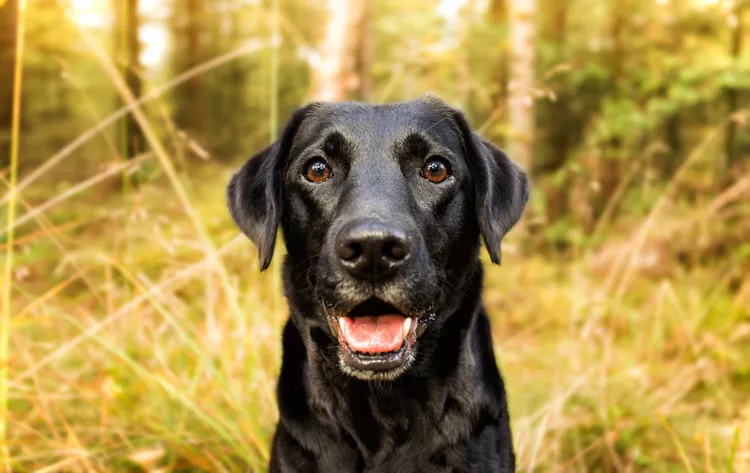
Pulled Muscles in Dogs
A pulled muscle is one of the most common injuries seen in dogs. What can you do if your dog pulls a muscle and how can you prevent it?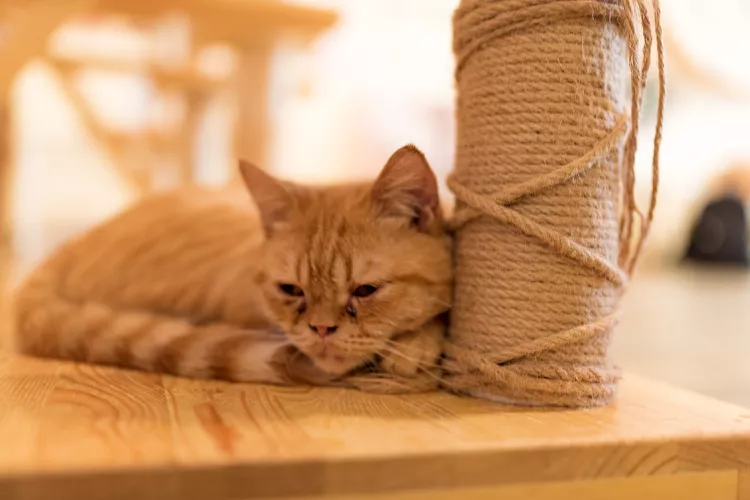
Fibrosarcoma in Cats
Fibrosarcomas are potentially fatal soft tissue tumors that can occur in cats. Learn the causes, treatment, and prevention.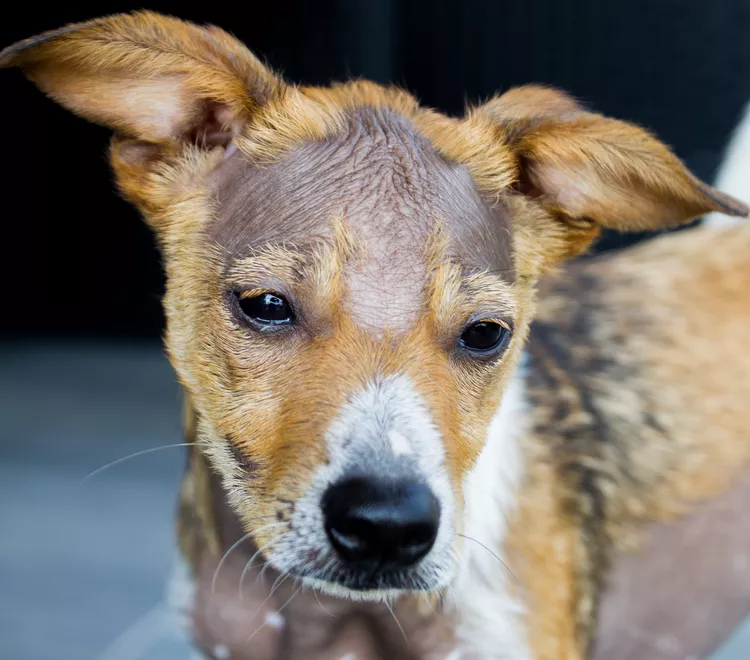
Alopecia in Dogs
Alopecia leads to hair loss and bald spots in dogs. Some breeds may be more at risk. Learn common causes, treatment, and prevention of dog alopecia.
Is Acetaminophen Safe for Dogs?
Acetaminophen is used by humans for pain and fever relief, but is it safe for dogs? Here's what you need to know before giving your dog acetaminophen.
Can Dogs Eat Almonds? Understanding the Risks and Guidelines
Can dogs eat almonds? While a couple likely won't hurt, it's best to avoid feeding your dog this nut. Learn the risks here.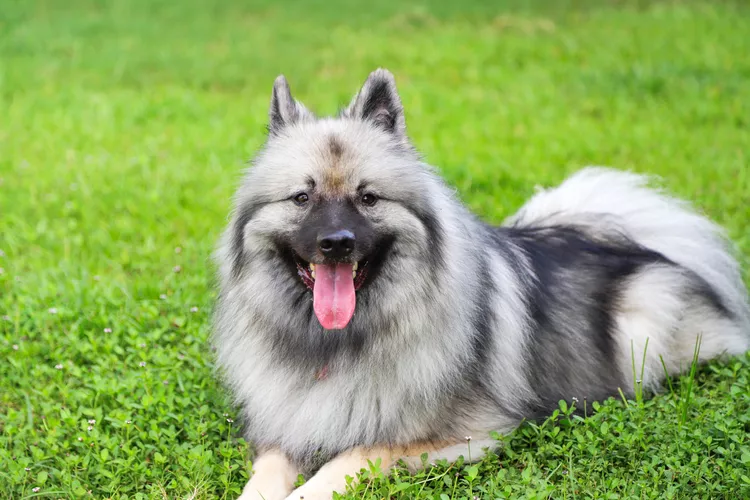
Keeshond: Dog Breed Characteristics & Care
Learn about the keeshond dog, also known as the Dutch Barge Dog. This fluffy spitz breed was bred to guard, but also makes a friendly companion.
Is Rosemary Safe for Dogs?
Rosemary is used both for cooking and as a supplement with many reported health benefits in people, so you may be wondering if it is safe to give to your dog. Rosemary is considered non-toxic for dogs but with some caveats.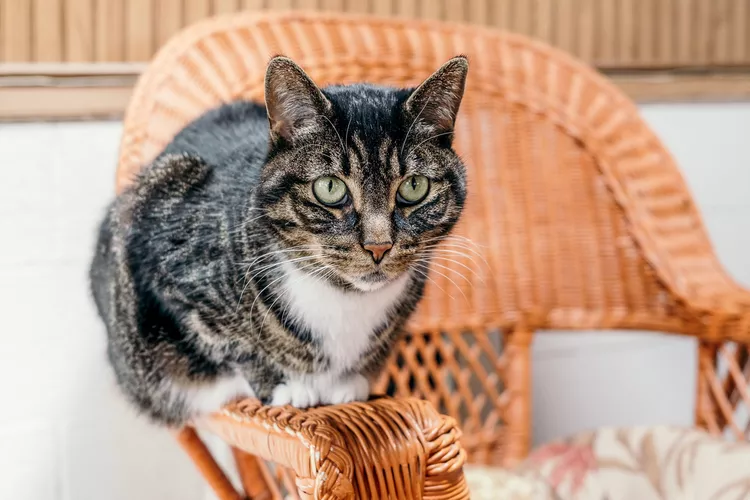
7 Hybrid Cats Breeds
Hybrid cat breeds can make appealing pets since they look more exotic than domestic house cats, but they aren't for everyone.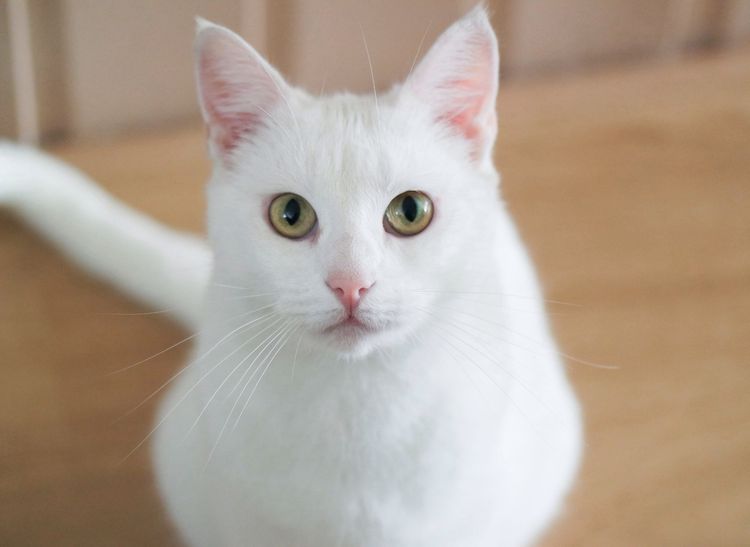
The Best White Cat Breeds to Keep as Pets
Several breeds can result in white cats with long or short hair. Find out the pros and cons of these white cat breeds.
11 Cute Pictures of Ragdoll Cats
Ragdoll cats are known for their beautiful coats and bright, blue eyes. Learn all about the breed, and check out some cute pictures here.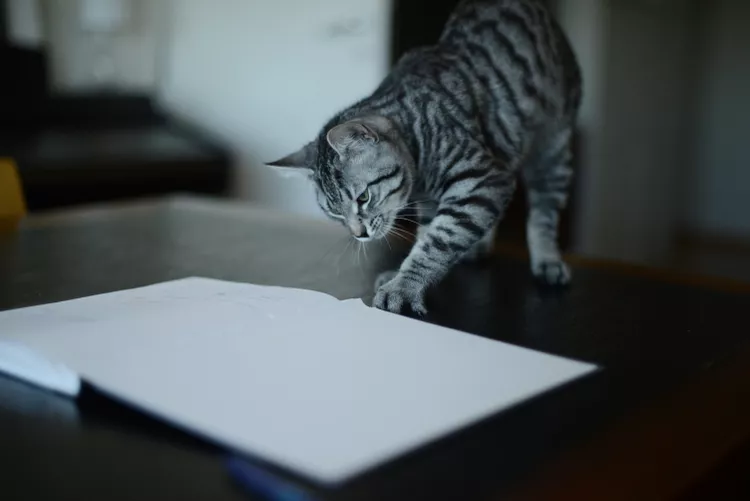
7 Reasons Why Your Cat Eats Paper, and How to Stop It
Is your cat eating paper? Learn why your cat is doing this, and find out how to put a stop to it.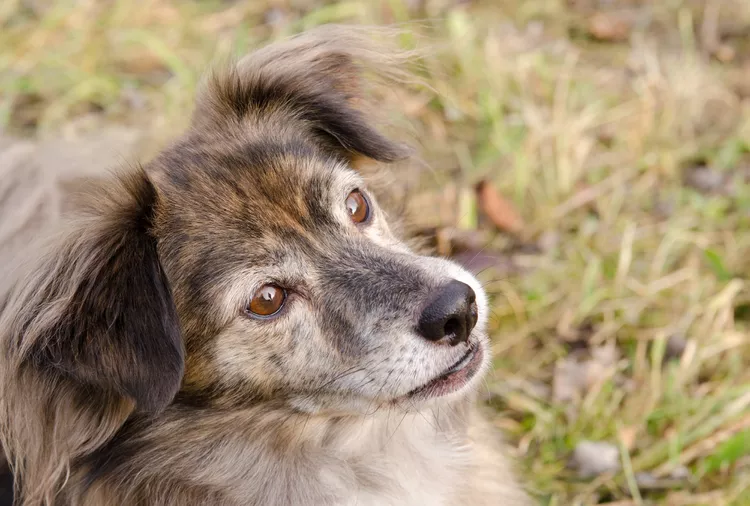
Feist: Dog Breed Characteristics & Care
Feists are small, short-haired dogs developed to hunt squirrels and catch vermin. These high-energy, affectionate pooches make great companion animals.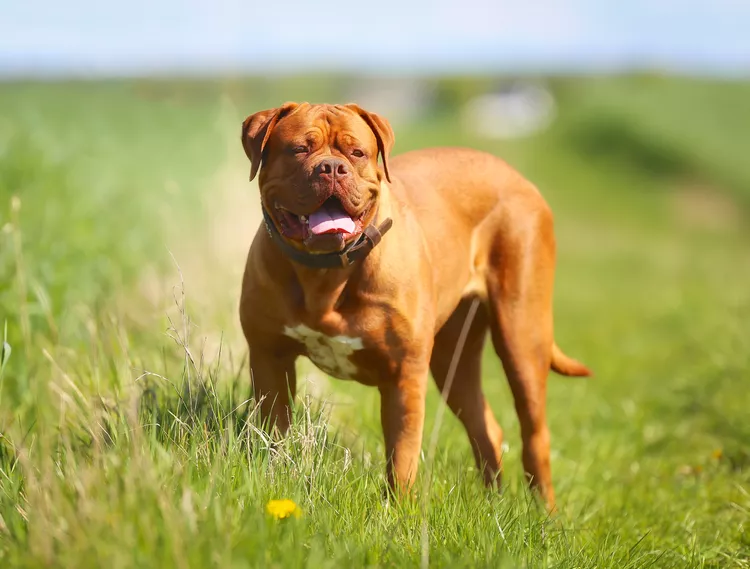
Dogue de Bordeaux (French Mastiff): Dog Breed Characteristics & Care
Learn about the Dogue de Bordeaux, also called the French mastiff. Although large and muscular, they’re known for their calm and gentle personality.
How to Stop Your Dog From Fearing Men
Many dogs have a phobia of men. Learn how to help your dog overcome its fear through desensitization and training while keeping everyone safe.
Why Dogs Eat Poop and How to Stop Them
Is your dog eating poop? Some dogs do this because of stress or illness. Learn how to prevent stool eating, or coprophagia, in dogs.